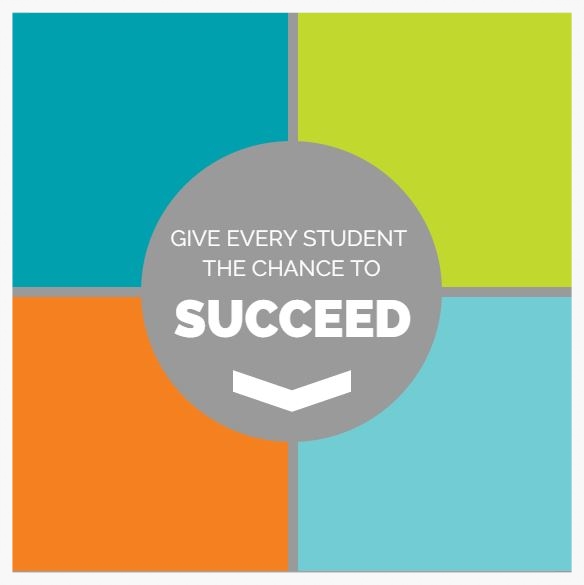By: Margo Ensz on March 12th, 2015
Response: Where Ed Tech is Failing Special Education
Featured Topics: Industry News and Trends | Featured Topics: Differentiated Instruction | Academic Subject: Special Education
EdSurge recently published an opinion article titled: "Where Edtech is Failing Special Education." Kara Brooks-Odom, a teacher of 16 years, outlines her experiences with the education technology industry in how it meets, or, in this case, doesn't meet, the needs of her students and her classroom.
In the article, Brooks-Odom describes her students as ages 14-21 but at a pre-K to 3rd grade academic level. She begins by contextualizing her current frustration:
"Last year, I went to a technology conference full of educators and software companies developing apps and programs for teachers to use in the schools. When I left, I asked, “But... what about my students? My young adult students?” I have attended too many professional development classes and graduate seminars to still have this question unanswered."
 Her biggest challenges come in the form of toileting issues, teaching basic phonics skills, behavior management, implement routines, and chasing students. As Brooks-Odom points out, no, there really are not apps for that. So, what is she looking for? "In my perfect world, technology has caught up with the changing face of special education, that someone has created the technology that has met the needs of my students." She then gives a few examples of apps written on an elementary level but with high school level content:
Her biggest challenges come in the form of toileting issues, teaching basic phonics skills, behavior management, implement routines, and chasing students. As Brooks-Odom points out, no, there really are not apps for that. So, what is she looking for? "In my perfect world, technology has caught up with the changing face of special education, that someone has created the technology that has met the needs of my students." She then gives a few examples of apps written on an elementary level but with high school level content:
-App that will help students understand elements of a story using pictures from common high school novels
-Reading app including comprehension check questions at the end of a paragraph or during major event in a story
Resources, applications, and time are all barriers dedicated teachers like Kara Brooks-Odom face while trying to best reach their students. Education technology is a rapidly evolving field, and hearing the opinions of teachers seeking solutions to their very real problems of resources and applications is invaluable. While we at VariQuest Visual Learning Tools don't have apps, we do work to provide solutions that save teachers time, help to differentiate instruction for learners of all abilities, and customize for lessons and comprehension levels.
For example, you can use the tools to support and implement:
-
Project Based Learning: Incorporate posters and manipulatives into interactive learning centers to engage visual and kinesthetic learners, while helping students of all abilities work together and contribute at their individual skill level
-
Visual Supports: Create a print-rich learning environment with static visuals andtangible study aids to reinforce key concepts, enhance knowledge acquisition and retention, and promote positive behavior
-
Differentiated Instruction & Alternative Assessments: Tailor instruction and offer opportunities for students to demonstrate their knowledge and abilities in non-traditional, visual ways by customizing content and including visual representations in lessons
-
Fine Motor Skills: Offer activities that involve cutouts and manipulatives to help improve fine motor skills and cognitive development for students with physical challenges or developmental delays
Learn more about how each VariQuest Visual Learning Tool supports special education in this brief, interactive flipbook - click below to view!
For high school students with disabilities, VariQuest Visual Learning Tools are also a safe, hands-on method to develop valuable career skills. This case study of the special-education students in the Community-Based Vocational Assessment and Training (CBVAT) demonstrates how one program uses the tools. Another high school teacher using the solution in his special education classroom said:
"VariQuest Visual Learning Tools have given our students across the special education spectrum a chance to gain real world work experience at school. Students have learned workplace skills, computer skills, design skills, money management, as well as numerous marketing strategies and economic concepts. These tools have allowed me to take Transition in the classroom to the next level."
Kara Brooks-Odom is not the only teacher looking for quality ed tech solutions to meet the needs of her students. She finishes her article, "I need the online resources, applications, and time to make it work. What I need is not out there, or at least I haven’t found it."

